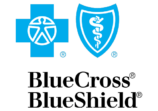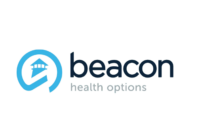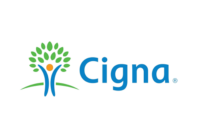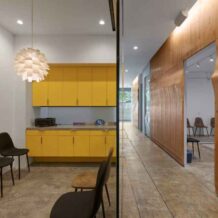Rehab care offers a comprehensive approach to addiction recovery, addressing physical, emotional, and psychological needs. It includes individualized medical guidance, counseling, and therapeutic activities in both inpatient and outpatient settings. Inpatient rehab provides 24/7 support for severe cases, while outpatient programs offer flexibility for those with milder addictions. Holistic therapies like yoga and meditation complement traditional treatments to promote overall well-being. The goal is to equip individuals with the tools and coping strategies necessary for long-term sobriety and improved quality of life, fostering complete healing and personal growth.
6 min to read
Santa Monica’s Premier Rehab Services & Recovery Programs
What is Rehab Care?
Rehab care is a planned medical and therapy program that helps people who have been abusing drugs, hurt themselves, or are having mental health issues get better. A nurturing environment where patients can receive comprehensive treatment is the fundamental meaning of rehab care. Individualized rehab services like medical guidance, counseling, and therapeutic activities are part of rehab care. The goal is to help people get better and take back control of their lives. To recover, people need care that focuses on their immediate health problems and gives them the tools and coping strategies they need to stay sober and have a better quality of life.

Types of Rehab Services
In Santa Monica, you can find alternative programs, inpatient rehab, and outpatient rehab. In inpatient care, people live there and get help and attention 24 hours a day, seven days a week. This approach is good for people who are seriously addicted or who need specialized medical care. Outpatient care, on the other hand, allows patients to attend therapy while staying at home. This method works for people with less severe problems or who need ongoing care after leaving hospital treatment. Holistic treatment programs use yoga, meditation, acupuncture, and dietary advice, among other things, to help people feel better and fully heal.
Staying at a rehab center for 30 to 90 days or more is part of comprehensive inpatient rehab programs. Some of the rehab services that these programs offer are medical detoxification, one-on-one and group treatment, medical monitoring 24 hours a day, seven days a week, and planned daily activities for recovery. Inpatient treatment programs give patients a safe, controlled space where they can focus on their recovery without any outside distractions. They work best for people who are severely addicted, have had multiple relapses, or have more than one mental health problem at the same time. People who need 24-hour care and a safe place to rebuild their lives need to go to inpatient rehab programs. These programs treat the physical, social, and mental aspects of addiction all at the same time.
Although they don't have 24/7 supervision, outpatient rehab programs offer flexible rehab services. People in these programs can live at home, work, or go to school while they are in therapy. Individual and group therapy, educational classes, and medical help are all part of outpatient care programs. They work best for addicts who are light to moderate, who have recently finished inpatient rehab, and who have a lot of help from their family.
Integrating physical, emotional, and spiritual health is the goal of holistic therapy. These programs combine standard and alternative therapies for a complete recovery. Yoga, meditation, acupuncture, and dietary counseling are all common alternative therapies in holistic rehab programs. These therapies supplement typical rehab services like counseling and medical care to alleviate stress, promote mental clarity, and restore physical health. Holistic rehab programs promote a balanced lifestyle and inner serenity to help patients heal long-term and avoid recurrence.
Benefits of Rehab Services
Rehab services offer numerous benefits that address the physical, emotional, and psychological aspects of addiction recovery.
- Medical Detoxification: Rehab institutions provide regulated detox programs to aid people suffering from withdrawal symptoms. These programs lessen the physical agony and health hazards of abruptly quitting narcotics.
- Healthcare Supervision: Continuous medical care ensures that medical staff swiftly address any health issues during detox or recovery.
- Nutritional Support: Good nutrition can help restore the body's health, speed up healing, and improve general physical well-being.
- Exercise and Physical Therapy: Structured physical exercises and training can help you get stronger, get fitter, and stay healthy.
- Therapeutic Support: In one-on-one and group counseling, addicts address the emotional causes of their addiction, healing and growing emotionally.
- Healthy Coping Mechanisms: Therapy helps people overcome unhealthy patterns by teaching them how to handle stress and emotional triggers.
- Rebuilding Self-Esteem: Addiction generally destroys confidence and self-worth, but positive reinforcement and supportive therapies can restore these.
- Community and Belonging: The attentive staff in rehab gives patients a sense of belonging and a common objective, reducing their isolation.
- Integrated Mental Health Treatment: A lot of the time, rehab services help people who also have mental health problems. This is called a "holistic approach," and it treats both drug and mental health problems at the same time.
- Mental Clarity: The structured environment and therapy approaches help people get their minds clearer, which is helpful because addiction can cause a lot of confusion and fog.
- Emotional Stability: Therapy and consistent support help people control their emotions, which helps them become and stay emotionally stable.
- Resilience Building: People in rehab get the tools and skills they need to deal with problems in the future. This makes them stronger and lowers their risk of return.
What is Included in Rehab?
There are many different methods and treatments that rehabs offer to help people who are addicted. What is rehab made up of? This first step makes sure that detox is safe and fun.
Individual and group therapy are both parts of rehab. Individual care looks at where addiction comes from and helps people learn new ways to deal with problems. In group therapy, people who are going through the same problems are encouraged to talk about them and help each other.
Both CBT and DBT are important parts of treatment methods. People who do these treatments can break bad habits and think more clearly. Family therapy is often used to fix ties and make the home a better place for healing.
The Full Meaning of Rehab
The full meaning of rehab is complete healing and personal growth. Rehab for substance abuse deals with the mental, emotional, social, and physical aspects of recovery. This all-around approach cleans people out and gives them the tools and help they need to stay healthy and live full lives.
Rehab offers many ways to improve health. Individual therapy finds and treats problems caused by addiction, while group therapy builds community and support. Family therapy fixes and improves relationships, making the home a better place to heal. Yoga, meditation, and art therapy are all examples of holistic treatments that can help lower stress and clear the mind.
To help people rebuild their lives, rehab programs also offer classes, help with finding work, and life skills. This all-encompassing strategy ensures that the full meaning of rehab includes personal development, mental stability, and building a support system, all of which are necessary for long-term healing and a better, happier future.
Addressing Drug Rehab
Addiction treatment with a focus on drugs is called drug rehab. The first step in drug rehab services is medical detoxification, or managed drug removal. This process is safe and relaxing, and it helps people who are going through withdrawal.
Individual therapy in drug rehab helps people figure out why they are addicted and how to deal with problems in their own unique ways. Therapists help people who are addicted to drugs deal with worry, depression, and other mental health problems that can come up. Group therapy is a safe place to talk about your problems, learn from others, and make friends.
Support groups and aftercare are necessary for long-term healing. Because they provide neighborhood and friend support, support groups help people feel less alone. Members of support groups can offer emotional support and physical help by talking about their own experiences and ways of dealing. This helps people become more responsible and resilient.
To help people get back to a normal life, rehab services include aftercare. As usual, aftercare includes going to AA or NA support groups, continuing treatment, and meeting with a psychologist for check-ins. These things help people stay focused on healing, deal with new problems, and avoid relapsing. Aftercare and support groups help to strengthen recovery behaviors and skills.
Final Thoughts
Physical, social, and mental rehab services are available at Santa Monica's best rehab centers. These programs offer long-term ways to heal, such as hospitalization and outpatient care, alternative treatments, and support groups. Individualized treatment plans, skilled medical care, and a welcoming setting are some of the benefits of rehab services in Santa Monica. You or someone you care about can get help from these top-notch facilities to beat addiction and live a better, happier life.
Discussion
Safe, Nurturing, Healing
Tulua Health is More Than a Recovery Center
Safety and support form the cornerstone of recovery at Tulua Health. We offer a nurturing environment that extends beyond treatment. Our facilities boast modern amenities, ensuring privacy, comfort, and a range of supportive programs. Here, every aspect of our sober living homes is designed to provide you with a sanctuary that you can proudly call home.
We Accept Many Health Plans





It Starts here
Get a Free Health Coverage Verification
Wellness doesn't just happen. Our team of behavioral health specialists can help find the plan that is right for you. If you're ready for a new start, click below to submit a free health insurance verification request.



